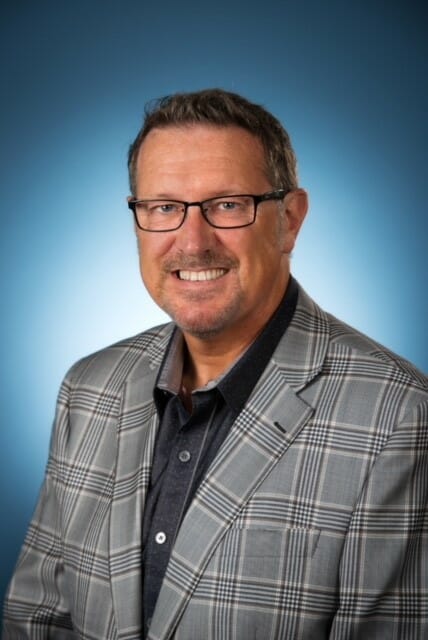For more than 20 years, Chris Wright has been doing what many other nursing home operators either can’t or won’t: taking patients with behavioral health diagnoses, treating them with embedded, additional services, and becoming a valued community partner while building value in his own business.

Following an expansion of his iCare Health Network last year, Wright remains bullish on building and managing behavioral health and other speciality services. But even as regulators put more emphasis on addressing the mental health needs of nursing home patients, the owner-operator cautions that it’s not for everyone.
Providers that jump in before building out the infrastructure and understanding the required investment aren’t likely to get the same results, iCare’s president and CEO warned in an interview with McKnight’s Long-Term Care.
“We became known as sort of a problem-solver for these patients that traditional nursing homes weren’t taking at the time,” Wright says of his company’s quick reputational growth. It entered the sector in 2002 with five properties purchased out of receivership and now has 12. “It was a way we built our company, and we capitalized on it.”
Those buildings were all maintaining census in the mid-to-upper 70% range, and Wright immediately turned to local hospitals to determine who they were having a hard time placing. The answer was patients who had both skilled care needs and behavioral health diagnoses. iCare filled its first 30-bed behavioral unit within 60 to 90 days.
The for-profit’s specialities now include six behavioral health units; multiple Touchpoint branded buildings with pulmonary and cardiac services; an HIV unit in inner-city Hartford and programs that serve patients being released from prison in two states.

iCare has also become a sought-ought expert for providers in other states looking to create their own behavioral health services, an area where there is growing interest.
A 2021 report from Brown University found the percentage of people diagnosed with serious mental illness, many of them under 65, has continued to increase in skilled nursing facilities, posing new challenges for both compliance and quality outcomes.
On April 13, the Centers for Medicare & Medicaid Services unveiled a new behavioral health strategy that promotes access to prevention and treatment services for substance use disorders, mental health services, crisis intervention and pain care in a person-centered approach. CMS also reinforced its willingness to pay for diagnosis and treatment of such needs.
But skilled nursing providers need to proceed carefully, Wright warns.
“I would caution anybody who’s doing behavioral health that you can’t just go into it thinking it’s going to put a head in the bed or be a census filler,” he says. “You have to have the programming in place first. You have to have the resources there, strict policies, and be able to train your staff appropriately for those types of residents and behaviors.”
Refreshing labor situation
A key to the iCare model is integrated staffing, including social workers for each behavioral health unit, contracted behavioral health experts such as psychiatrists and therapists; hospital-affiliated specialists who can be tapped when other needs arise; and a vice president of psychosocial services who coordinates efforts across the chain.
Although iCare has at times needed to shift much of its marketing to recruiting in recent months, it has in some ways been sheltered from industry-wide labor challenges.
About one-third to one-quarter of the chain’s residents have behavioral diagnosis. Those individuals and short-term patients in the medical specialty units need a higher level of care than typical long-stay residents, making the nursing home a more attractive alternative for nurses who like the idea of practicing at the top of their license.
One example: When iCare opened Connecticut’s 60West in 2013 to take in judicially involved patients, the CMS-licensed nursing home had more than 2,000 applicants wanting to help staff up the 95-bed facility.
“What we’ve found is that certain employees are sort of drawn to work in a speciality program,” Wright says, emphasizing the need for education to disprove stereotypes. “When you’re specially trained in that, it’s very rewarding. There are many employees who feel that they’re really helping … people with specialized needs that are very underserved. If we can help them and bring them up to their highest level of potential and even discharge them to the community, it’s very rewarding.”
Recruiting residents hasn’t been an issue, either. While many behavioral patients may reside for the long-term, for others the goal remains to transition back to the broader community. Despite that short-term nature, iCare had occupancy of 84.7% across all 12 facilities in mid-April, compared to an average of about 79% reported by operators nationally.
“These programs have typically always been full with residents with those needs,” Wright says. “One gets discharged and there’s more waiting to come in that have that need.”
How to grow
During the pandemic, a hospital system in Massachusetts reached out to iCare for help managing a facility for released prisoners. That led to iCare’s eventual purchase of a new building nearby and the transfer of all residents in partnership with the state. It is the first time the company has gone outside Connecticut to provide care, but likely not the last.
“We never say no until we know what we’re saying no to.”
Chris Wright
The 60West project and this new partnership in Holyoke, MA, have led to routine calls from others whose states are in need of similar skilled nursing outlets. iCare also has fielded calls from investors looking to bring a care partner into business deals.
“We never say no until we know what we’re saying no to,” Wright says, though he is more inclined toward growth close to iCare’s established geographic footprint. Smart projects further afield might be more likely to lead to a consultancy or management joint venture, where a partner would provide resources on the ground.
The ability to increase census and serve nearby referral partners with something missing from the market also would be critical considerations.
“The way I believe we have been successful is that we have always bought low-performing and just built the value up,” Wright says. “I would rather have 12 buildings that are functioning and working better than to have 120 with negative equity and losing. We stay focused on our mission of serving, in most of our buildings, an underserved pop, and that in itself has brought value to us in our reputation and in fact, financially, to keep our occupancy.”
Medicaid pay challenges
Still, iCare patients are almost entirely Medicaid beneficiaries — exactly 91.5% as of Friday afternoon — which is its own challenge when working to keep the doors open.
Some behavioral patients receive enhanced state-contracted reimbursement, but Wright is working hard as a state and national leader to make lawmakers understand the crisis of Medicaid underfunding.
In Connecticut, a series of recent Medicaid increases have been doled out as wage enhancements, which Wright touted as a key step in keeping his unionized staff on the job.
A new agreement forged in 2021 with the SEIU will drive pay for CNAs up to $20 hourly by the end of the four-year term.
“We are willing and need to pay them that,” Wright says. “I’ve told the union: I care about my employees. I want them to get attention. I want them to not have to work two and three jobs to make ends meet. I’m with you on that. But you’ve got to know if I get a zero Medicaid rate increase, and most of my population is Medicaid, then my facility may close and they won’t have a job. We’ve got to be pragmatic here on how we want to approach this.”
Union leaders and providers both lobbied for higher rates during the pandemic, though Connecticut provider organizations continue to note that a total 6.6% rate increase doesn’t cover the 21% jump on direct care hourly rates or a 54% increase in agency rates since 2019.
Personal affirmation
Lobbying has become a larger part of Wright’s focus since he first became a national board member of the American Health Care Association in 2018. He is currently secretary and treasurer.
He also became a family member of a SNF patient after his mother had a stroke in 2016 at age 75. Her experiences in a North Carolina facility and with the CNAs there have broadened his vision of long-term care, he explains.
Wright is urging CMS to embrace a holistic approach to Medicare and Medicaid payment as it tackles nursing home reform, advocating for a permanent increase in FMAP percentages, a mandatory nursing home benefit and new rules that would bring uniformity to how states calculate allowable Medicaid costs.
“States, at some point, need to be held accountable that their rate has to be adequate for the cost of care,” he says. “We all want, as providers, CMS, legislators, quality of care and nursing homes to be accountable. We get that. But they have to realize they have to fund us.”




